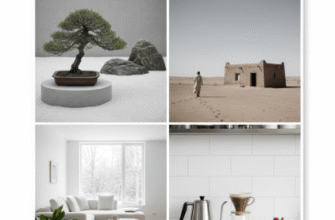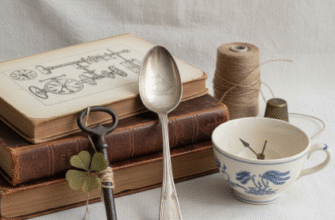We carry entire universes in our pockets, yet we often feel strangely empty. Our devices buzz and chime, a constant chorus of connection that promises to keep loneliness at bay. But does it? In a world that champions constant interaction and digital omnipresence, the very idea of being alone can feel like a failure, a social misstep. We scroll through curated lives, reply to messages instantly, and fill every spare moment with a podcast, a video, or an article. We’ve become experts at avoiding silence, at running from the one person we can never truly escape: ourselves.
The Lost Art of Being Alone
There is a profound difference between loneliness and solitude, a distinction our hyper-connected culture seems to have forgotten. Loneliness is a painful, involuntary state of isolation; it’s the feeling of being disconnected from others when you crave connection. Solitude, on the other hand, is a choice. It’s the deliberate act of stepping away from the noise of the world to spend quality time with your own thoughts, emotions, and consciousness. It isn’t about escaping people, but about finding a space to connect more deeply with yourself.
Think of it as the difference between being stranded in a desert and choosing to go on a retreat there. The environment is the same, but the mindset, the intention, changes everything. In solitude, we are not lacking company; we are our own company. This intentional quiet is where the subtle work of self-discovery happens. Without the constant input and validation from others, we are forced to listen to our own inner voice, to untangle our thoughts, and to sit with our feelings without distraction.
It’s crucial to understand that solitude is not a rejection of social connection, but a vital component that enriches it. By taking time to understand ourselves better, we return to our relationships more present, self-aware, and authentic. True solitude recharges our social batteries rather than depleting them.
Creativity’s Quiet Incubator
Have you ever noticed how the best ideas often arrive not in a bustling meeting room, but in the shower, on a quiet walk, or in those moments just before sleep? This is no coincidence. Creativity requires space. It needs room to breathe, to experiment, and to make connections that aren’t immediately obvious. The constant stream of external information from our connected world keeps our minds in a state of reaction, processing new data rather than generating original thought.
Solitude provides the fertile ground for the seeds of creativity to sprout. When we are alone with our thoughts, our brain can switch to what neuroscientists call the “default mode network.” This is the state where we daydream, reflect on the past, and imagine the future. It’s where we consolidate memories and, most importantly, where we engage in the kind of associative thinking that leads to breakthroughs and innovative solutions. By constantly distracting ourselves, we rob our minds of this essential processing time.
Cultivating Solitude in a Noisy World
Finding solitude doesn’t mean you have to book a silent retreat or move to a cabin in the woods. The power lies in creating small, intentional pockets of quiet in your daily life. It’s about quality, not quantity. The goal is to consciously disconnect from external stimuli to reconnect internally.
- Schedule “Do Not Disturb” Time: Just as you schedule meetings and appointments, schedule 15-30 minutes of alone time into your day. Put your phone in another room, turn off notifications, and simply be. You don’t have to meditate (though you can); you could just look out a window, listen to the sounds around you, or doodle in a notebook.
- Embrace Analog Hobbies: Engage in activities that don’t involve a screen. This could be gardening, painting, playing a musical instrument, knitting, or woodworking. These tactile hobbies occupy your hands and allow your mind to wander freely, creating a perfect state of productive solitude.
- Take a Mindful Walk: Go for a walk without headphones or a destination in mind. Pay attention to your surroundings – the feel of the air, the color of the sky, the sounds of nature or the city. This simple act can be a powerful way to ground yourself in the present moment and clear your mental clutter.
- The “Restaurant for One” Challenge: One of the biggest social hurdles is the fear of being seen alone in public. Challenge yourself to go to a café or a restaurant by yourself. Take a book or a journal, but try to spend at least part of the time simply observing the world around you, comfortable in your own presence.
Initially, embracing solitude can feel uncomfortable, even boring. We are so accustomed to constant stimulation that its absence can feel jarring. But by pushing through that initial discomfort, you begin to uncover a profound sense of peace and clarity. You start to realize that you are not just a collection of your relationships and interactions, but a whole, complete person on your own. In the quiet, you don’t lose connection; you find the most important one of all.









